- Home
- F. Scott Fitzgerald
The Crack-Up Page 3
The Crack-Up Read online
Page 3
For just a moment, before it was demonstrated that I was unable to play the role, I, who knew less of New York than any reporter of six months standing and less of its society than any hall-room boy in a Ritz stag line, was pushed into the position not only of spokesman for the time but of the typical product of that same moment. I, or rather it was “we” now, did not know exactly what New York expected of us and found it rather confusing. Within a few months after our embarkation on the Metropolitan venture we scarcely knew any more who we were and we hadn’t a notion what we were. A dive into a civic fountain, a casual brush with the law, was enough to get us into the gossip columns, and we were quoted on a variety of subjects we knew nothing about. Actually our “contacts” included half a dozen unmarried college friends and a few new literary acquaintances—I remember a lonesome Christmas when we had not one friend in the city, nor one house we could go to. Finding no nucleus to which we could cling, we became a small nucleus ourselves and gradually we fitted our disruptive personalities into the contemporary scene of New York. Or rather New York forgot us and let us stay.
This is not an account of the city’s changes but of the changes in this writer’s feeling for the city. From the confusion of the year 1920 I remember riding on top of a taxicab along deserted Fifth Avenue on a hot Sunday night, and a luncheon in the cool Japanese gardens at the Ritz with the wistful Kay Laurel and George Jean Nathan, and writing all night again and again, and paying too much for minute apartments, and buying magnificent but broken-down cars. The first speakeasies had arrived, the toddle was passé, the Montmartre was the smart place to dance and Lillian Tashman’s fair hair weaved around the floor among the enliquored college boys. The plays were Declassée and Sacred and Profane Love, and at the Midnight Frolic you danced elbow to elbow with Marion Davies and perhaps picked out the vivacious Mary Hay in the pony chorus. We thought we were apart from all that; perhaps everyone thinks they are apart from their milieu. We felt like small children in a great bright unexplored barn. Summoned out to Griffith’s studio on Long Island, we trembled in the presence of the familiar faces of the Birth of a Nation; later I realized that behind much of the entertainment that the city poured forth into the nation there were only a lot of rather lost and lonely people. The world of the picture actors was like our own in that it was in New York and not of it. It had little sense of itself and no center: when I first met Dorothy Gish I had the feeling that we were both standing on the North Pole and it was snowing. Since then they have found a home but it was not destined to be New York.
When bored we took our city with a Huysmans-like perversity. An afternoon alone in our “apartment” eating olive sandwiches and drinking a quart of Bushmill’s whiskey presented by Zoë Atkins, then out into the freshly bewitched city, through strange doors into strange apartments with intermittent swings along in taxis through the soft nights. At last we were one with New York, pulling it after us through every portal. Even now I go into many flats with the sense that I have been there before or in the one above or below—was it the night I tried to disrobe in the Scandals, or the night when (as I read with astonishment in the paper next morning) “Fitzgerald Knocks Officer This Side of Paradise”? Successful scrapping not being among my accomplishments, I tried in vain to reconstruct the sequence of events which led up to this dénouement in Webster Hall. And lastly from that period I remember riding in a taxi one afternoon between very tall buildings under a mauve and rosy sky; I began to bawl because I had everything I wanted and knew I would never be so happy again.
It was typical of our precarious position in New York that when our child was to be born we played safe and went home to St. Paul—it seemed inappropriate to bring a baby into all that glamor and loneliness. But in a year we were back and we began doing the same things over again and not liking them so much. We had run through a lot, though we had retained an almost theatrical innocence by preferring the role of the observed to that of the observer. But innocence is no end in itself and as our minds unwillingly matured we began to see New York whole and try to save some of it for the selves we would inevitably become.
It was too late—or too soon. For us the city was inevitably linked up with Bacchic diversions, mild or fantastic. We could organize ourselves only on our return to Long Island and not always there. We had no incentive to meet the city half way. My first symbol was now a memory, for I knew that triumph is in oneself; my second one had grown commonplace—two of the actresses whom I had worshipped from afar in 1913 had dined in our house. But it filled me with a certain fear that even the third symbol had grown dim—the tranquillity of Bunny’s apartment was not to be found in the ever-quickening city. Bunny himself was married, and about to become a father, other friends had gone to Europe, and the bachelors had become cadets of houses larger and more social than ours. By this time we “knew everybody”—which is to say most of those whom Ralph Barton would draw as in the orchestra on an opening night.
But we were no longer important. The flapper, upon whose activities the popularity of my first books was based, had become passé by 1923—anyhow in the East. I decided to crash Broadway with a play, but Broadway sent its scouts to Atlantic City and quashed the idea in advance, so I felt that, for the moment, the city and I had little to offer each other. I would take the Long Island atmosphere that I had familiarly breathed and materialize it beneath unfamiliar skies.
It was three years before we saw New York again. As the ship glided up the river, the city burst thunderously upon us in the early dusk—the white glacier of lower New York swooping down like a strand of a bridge to rise into uptown New York, a miracle of foamy light suspended by the stars. A band started to play on deck, but the majesty of the city made the march trivial and tinkling. From that moment I knew that New York, however often I might leave it, was home.
The tempo of the city had changed sharply. The uncertainties of 1920 were drowned in a steady golden roar and many of our friends had grown wealthy. But the restlessness of New York in 1927 approached hysteria. The parties were bigger—those of Condé Nast, for example, rivaled in their way the fabled balls of the nineties; the pace was faster—the catering to dissipation set an example to Paris; the shows were broader, the buildings were higher, the morals were looser and the liquor was cheaper; but all these benefits did not really minister to much delight. Young people wore out early—they were hard and languid at twenty-one and save for Peter Arno none of them contributed anything new; perhaps Peter Arno and his collaborators said everything there was to say about the boom days in New York that couldn’t be said by a jazz band. Many people who were not alcoholics were lit up four days out of seven, and frayed nerves were strewn everywhere; groups were held together by a generic nervousness and the hangover became a part of the day as well allowed-for as the Spanish siesta. Most of my friends drank too much—the more they were in tune to the times the more they drank. And as effort per se had no dignity against the mere bounty of those days in New York, a depreciatory word was found for it: a successful programme became a racket—I was in the literary racket.
We settled a few hours from New York and I found that every time I came to the city I was caught up into a complication of events that deposited me a few days later in a somewhat exhausted state on the train for Delaware. Whole sections of the city had grown rather poisonous, but invariably I found a moment of utter peace in riding south through Central Park at dark toward where the façade of 59th Street thrusts its lights through the trees. There again was my lost city, wrapped cool in its mystery and promise. But that detachment never lasted long—as the toiler must live in the city’s belly, so I was compelled to live in its disordered mind.
Instead there were the speakeasies—the moving from luxurious bars, which advertised in the campus publications of Yale and Princeton, to the beer gardens where the snarling face of the underworld peered through the German good nature of the entertainment, then on to strange and even more sinister localities where one was eyed by granite-faced b
oys and there was nothing left of joviality but only a brutishness that corrupted the new day into which one presently went out. Back in 1920 I shocked a rising young business man by suggesting a cocktail before lunch. In 1929 there was liquor in half the downtown offices, and a speakeasy in half the large buildings.
One was increasingly conscious of the speakeasy and of Park Avenue. In the past decade Greenwich Village, Washington Square, Murray Hill, the châteaux of Fifth Avenue had somehow disappeared, or become unexpressive of anything. The city was bloated, glutted, stupid with cake and circuses, and a new expression “Oh yeah?” summed up all the enthusiasm evoked by the announcement of the last super-skyscrapers. My barber retired on a half million bet in the market and I was conscious that the head waiters who bowed me, or failed to bow me, to my table were far, far wealthier than I. This was no fun—once again I had enough of New York and it was good to be safe on shipboard where the ceaseless revelry remained in the bar in transport to the fleecing rooms of France.
“What news from New York?”
“Stocks go up. A baby murdered a gangster.”
“Nothing more?”
“Nothing. Radios blare in the street.”
I once thought that there were no second acts in American lives, but there was certainly to be a second act to New York’s boom days. We were somewhere in North Africa when we heard a dull distant crash which echoed to the farthest wastes of the desert.
“What was that?”
“Did you hear it?”
“It was nothing.”
“Do you think we ought to go home and see?”
“No—it was nothing.”
In the dark autumn of two years later we saw New York again. We passed through curiously polite customs agents, and then with bowed head and hat in hand I walked reverently through the echoing tomb. Among the ruins a few childish wraiths still played to keep up the pretense that they were alive, betraying by their feverish voices and hectic cheeks the thinness of the masquerade. Cocktail parties, a last hollow survival from the days of carnival, echoed to the plaints of the wounded: “Shoot me, for the love of God, someone shoot me!”, and the groans and wails of the dying: “Did you see that United States Steel is down three more points?” My barber was back at work in his shop; again the head waiters bowed people to their tables, if there were people to be bowed. From the ruins, lonely and inexplicable as the sphinx, rose the Empire State Building and, just as it had been a tradition of mine to climb to the Plaza Roof to take leave of the beautiful city, extending as far as eyes could reach, so now I went to the roof of the last and most magnificent of towers. Then I understood—everything was explained: I had discovered the crowning error of the city, its Pandora’s box. Full of vaunting pride the New Yorker had climbed here and seen with dismay what he had never suspected, that the city was not the endless succession of canyons that he had supposed but that it had limits—from the tallest structure he saw for the first time that it faded out into the country on all sides, into an expanse of green and blue that alone was limitless. And with the awful realization that New York was a city after all and not a universe, the whole shining edifice that he had reared in his imagination came crashing to the ground. That was the rash gift of Alfred E. Smith to the citizens of New York.
Thus I take leave of my lost city. Seen from the ferry boat in the early morning, it no longer whispers of fantastic success and eternal youth. The whoopee mamas who prance before its empty parquets do not suggest to me the ineffable beauty of my dream girls of 1914. And Bunny, swinging along confidently with his cane toward his cloister in a carnival, has gone over to Communism and frets about the wrongs of southern mill workers and western farmers whose voices, fifteen years ago, would not have penetrated his study walls.
All is lost save memory, yet sometimes I imagine myself reading, with curious interest, a Daily News of the issue of 1945:
MAN OF FIFTY RUNS AMUCK IN NEW YORK
Fitzgerald Feathered Many Love Nests Cutie Avers
Bumped Off By Outraged Gunman
So perhaps I am destined to return some day and find in the city new experiences that so far I have only read about. For the moment I can only cry out that I have lost my splendid mirage. Come back, come back, O glittering and white!
RING
October, 1933
FOR a year and a half, the writer of this appreciation was Ring Lardner’s most familiar companion; after that, geography made separations and our contacts were rare. When my wife and I last saw him in 1931, he looked already like a man on his deathbed—it was terribly sad to see that six feet three inches of kindness stretched out ineffectual in the hospital room. His fingers trembled with a match, the tight skin on his handsome skull was marked as a mask of misery and nervous pain.
He gave a very different impression when we first saw him in 1921—he seemed to have an abundance of quiet vitality that would enable him to outlast anyone, to take himself for long spurts of work or play that would ruin any ordinary constitution. He had recently convulsed the country with the famous kitten-and-coat saga (it had to do with a world’s series bet and with the impending conversion of some kittens into fur), and the evidence of the betting, a beautiful sable, was worn by his wife at the time. In those days he was interested in people, sports, bridge, music, the stage, the newspapers, the magazines, the books. But though I did not know it, the change in him had already begun—the impenetrable despair that dogged him for a dozen years to his death.
He had practically given up sleeping, save on short vacations deliberately consecrated to simple pleasures, most frequently golf with his friends, Grantland Rice or John Wheeler. Many a night we talked over a case of Canadian ale until bright dawn, when Ring would rise and yawn: “Well, I guess the children have left for school by this time—I might as well go home.”
The woes of many people haunted him—for example, the doctor’s death sentence pronounced upon Tad, the cartoonist, (who, in fact, nearly outlived Ring)—it was as if he believed he could and ought to do something about such things. And as he struggled to fulfill his contracts, one of which, a comic strip based on the character of “the busher,” was a terror, indeed, it was obvious that he felt his work to be directionless, merely “copy.” So he was inclined to turn his cosmic sense of responsibility into the channel of solving other people’s problems—finding someone an introduction to a theatrical manager, placing a friend in a job, maneuvering a man into a golf club. The effort made was often out of proportion to the situation; the truth back of it was that Ring was getting off—he was a faithful and conscientious workman to the end, but he had stopped finding any fun in his work ten years before he died.
About that time (1922) a publisher undertook to reissue his old books and collect his recent stories and this gave him a sense of existing in the literary world as well as with the public, and he got some satisfaction from the reiterated statements of Mencken and F. P. A. as to his true stature as a writer. But I don’t think he cared then—it is hard to understand but I don’t think he really gave a damn about anything except his personal relations with a few people. A case in point was his attitude to those imitators who lifted everything except the shirt off his back—only Hemingway has been so thoroughly frisked—it worried the imitators more than it worried Ring. His attitude was that if they got stuck in the process he’d help them over any tough place.
Throughout this period of huge earnings and an increasingly solid reputation on top and beneath, there were two ambitions more important to Ring than the work by which he will be remembered; he wanted to be a musician—sometimes he dramatized himself ironically as a thwarted composer—and he wanted to write shows. His dealings with managers would make a whole story: they were always commissioning him to do work which they promptly forgot they had ordered, and accepting librettos that they never produced. (Ring left a short ironic record of Ziegfeld.) Only with the aid of the practical George Kaufman did he achieve his ambition, and by then he was too far gone in illness to
get a proper satisfaction from it.
The point of these paragraphs is that, whatever Ring’s achievement was, it fell short of the achievement he was capable of, and this because of a cynical attitude toward his work. How far back did that attitude go?—back to his youth in a Michigan village? Certainly back to his days with the Cubs. During those years, when most men of promise achieve an adult education, if only in the school of war, Ring moved in the company of a few dozen illiterates playing a boy’s game. A boy’s game, with no more possibilities in it than a boy could master, a game bounded by walls which kept out novelty or danger, change or adventure. This material, the observation of it under such circumstances, was the text of Ring’s schooling during the most formative period of the mind. A writer can spin on about his adventures after thirty, after forty, after fifty, but the criteria by which these adventures are weighed and valued are irrevocably settled at the age of twenty-five. However deeply Ring might cut into it, his cake had exactly the diameter of Frank Chance’s diamond.
Here was his artistic problem, and it promised future trouble. So long as he wrote within that enclosure the result was magnificent: within it he heard and recorded the voice of a continent. But when, inevitably, he outgrew his interest in it, what was Ring left with?
He was left with his fine linguistic technique—and he was left rather helpless in those few acres. He had been formed by the very world on which his hilarious irony had released itself. He had fought his way through to knowing what people’s motives are and what means they are likely to resort to in order to attain their goals. But now he had a new problem—what to do about it. He went on seeing, and the sights traveled back to the optic nerve, but no longer to be thrown off in fiction, because they were no longer sights that could be weighed and valued by the old criteria. It was never that he was completely sold on athletic virtuosity as the be-all and end-all of problems; the trouble was that he could find nothing finer. Imagine life conceived as a business of beautiful muscular organization—an arising, an effort, a good break, a sweat, a bath, a meal, a love, a sleep—imagine it achieved; then imagine trying to apply that standard to the horribly complicated mess of living, where nothing, even the greatest conceptions and workings and achievements, is else but messy, spotty, tortuous—and then one can imagine the confusion that Ring faced on coming out of the ball park.

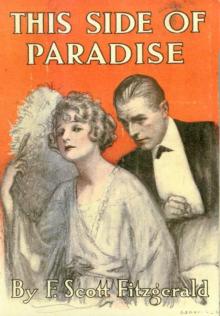 This Side of Paradise
This Side of Paradise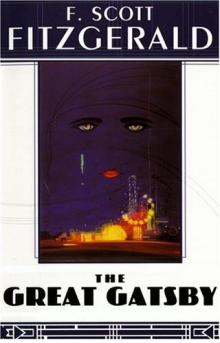 The Great Gatsby
The Great Gatsby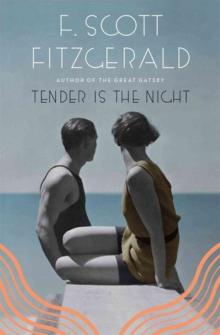 Tender Is the Night
Tender Is the Night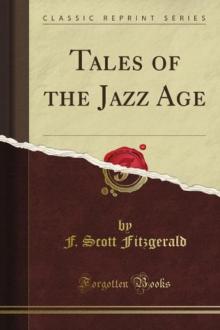 Tales of the Jazz Age (Classic Reprint)
Tales of the Jazz Age (Classic Reprint)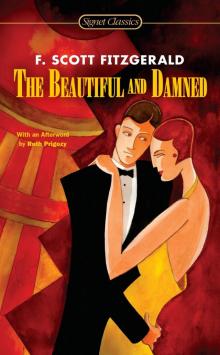 The Beautiful and Damned
The Beautiful and Damned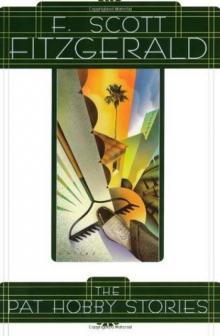 The Pat Hobby Stories
The Pat Hobby Stories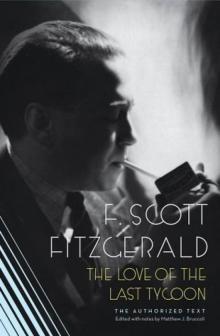 The Love of the Last Tycoon
The Love of the Last Tycoon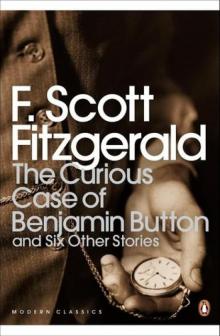 The Curious Case of Benjamin Button and Six Other Stories
The Curious Case of Benjamin Button and Six Other Stories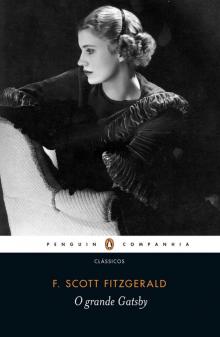 O Grande Gatsby (Penguin)
O Grande Gatsby (Penguin)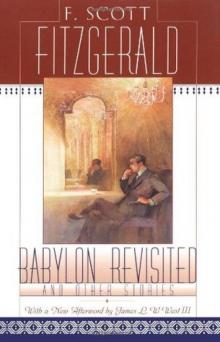 Babylon Revisited and Other Stories
Babylon Revisited and Other Stories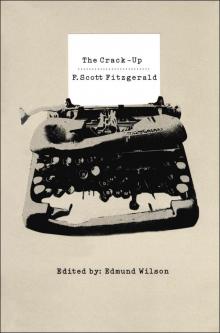 The Crack-Up
The Crack-Up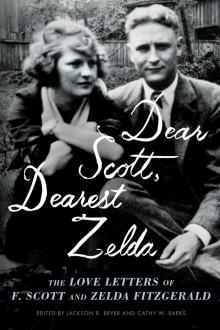 Dear Scott, Dearest Zelda
Dear Scott, Dearest Zelda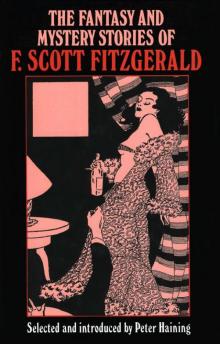 The Fantasy and Mystery Stories of F Scott Fitzgerald
The Fantasy and Mystery Stories of F Scott Fitzgerald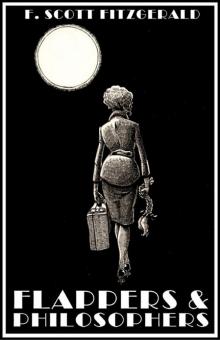 Flappers and Philosophers
Flappers and Philosophers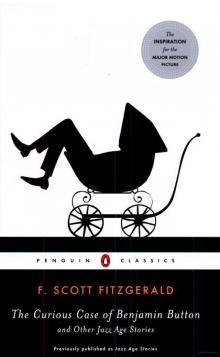 The Curious Case of Benjamin Button and Other Jazz Age Stories (Penguin Classics)
The Curious Case of Benjamin Button and Other Jazz Age Stories (Penguin Classics)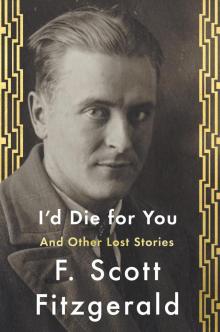 I'd Die For You
I'd Die For You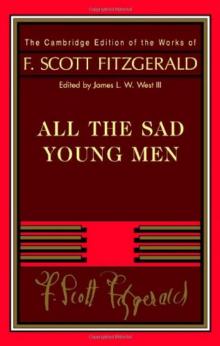 All the Sad Young Men
All the Sad Young Men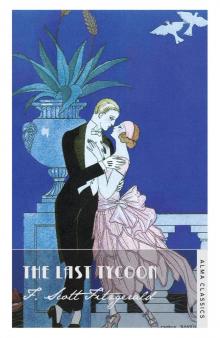 The Last Tycoon
The Last Tycoon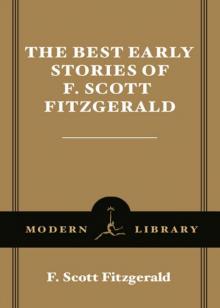 The Best Early Stories of F. Scott Fitzgerald
The Best Early Stories of F. Scott Fitzgerald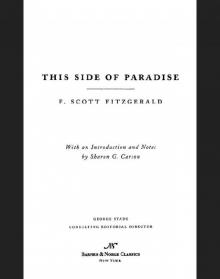 This Side of Paradise (Barnes & Noble Classics Series)
This Side of Paradise (Barnes & Noble Classics Series)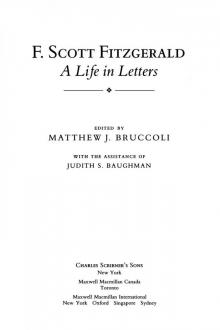 A Life in Letters
A Life in Letters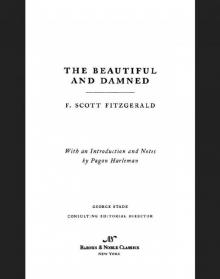 Beautiful and Damned (Barnes & Noble Classics Series)
Beautiful and Damned (Barnes & Noble Classics Series)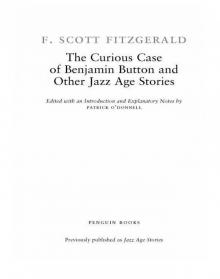 The Curious Case of Benjamin Button and Other Jazz Age Stories
The Curious Case of Benjamin Button and Other Jazz Age Stories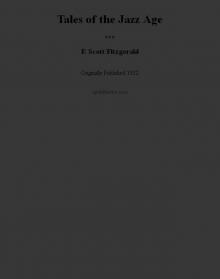 Tales of the Jazz Age
Tales of the Jazz Age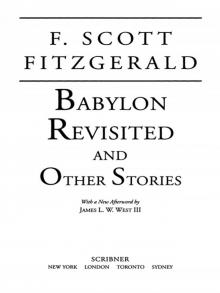 Babylon Revisited
Babylon Revisited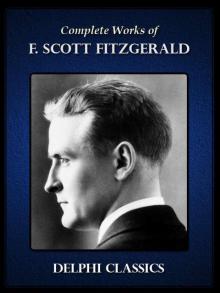 Complete Works of F. Scott Fitzgerald UK (Illustrated)
Complete Works of F. Scott Fitzgerald UK (Illustrated)